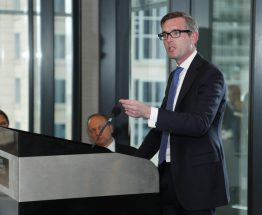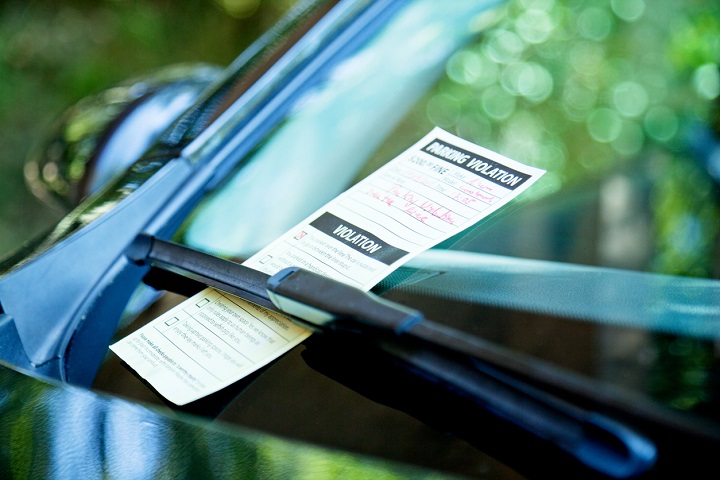The NSW Treasurer has accused the state’s councils of treating ratepayers like “cash cows” and using fines to raise revenue.
Tuesday’s state budget shows revenue from fines is forecast to increase from $6.5 million in 2018-19 to $8.1 million in 2019-20.

Treasurer Dominic Perottet on Tuesday revealed the state is expected to collect $3.3 billion in fines over the next four years – a windfall that the state says will come from its crackdown on drink driving and speeding.
When asked to explain that figure during the budget lockup on Tuesday, Treasurer Dominic Perrottet instead launched an attack on councils, saying while the NSW government last year reduced fines by 25 per cent, local government had decided not to follow that path.
“Stop using ratepayers as cash cows and cut fines in line with the NSW Government,” Mr Perrottet told a press conference.
Mr Perrottet said despite years earlier calling for the state to reduce the cost of parking fines, councils have instead now “start[ed] using parking fines as a way of raising revenue.”
“We have had a number of councils blaming the NSW Government for the amounts of parking fines so last year we started listening to councils and gave [councils] an opportunity to cut parking fines but only a handful signed up,” he said.
Figures obtained by Government News reveal that just 20 of the state’s 180 councils have lowered the cost of fines.
“I say they should put their money where their mouth is and cut rates and follow the NSW Government’s lead and reduce parking fines by 25 per cent to make better use of your funds and focus on ratepayers and not on yourselves,” Mr Perrottet.
The state’s local government peak Local Government NSW (LGNSW) said that the exact cost of parking fines needs to be determined by councils on a case-by-case basis.
“Councils are always keen to help support residents and ratepayers, but must decide whether reducing the disincentive to overstay parking restrictions really does benefit their communities and local small businesses,” a spokesperson said.
“In many areas soaring traffic congestion, lengthy construction periods and the resulting clogged roads means parking overstayers cause real problems. In other areas parkers who overstay the time limits may pose much less of a challenge.
“Each council needs to weigh the benefit and drawbacks to their local community, including the small businesses for whom the availability and turnover rates of street parking can be critical. Only individual councils have the local knowledge and closeness to their community to make the best decision for their area.”
Comment below to have your say on this story.
If you have a news story or tip-off, get in touch at editorial@governmentnews.com.au.
Sign up to the Government News newsletter.




How about the NSW Government stops using local government as a whipping boy and allows them to set their own rates to cover the cost of an increasing number of community services and infrastructure maintenance? Local government collects less than 1% of national taxation revenue.
Chris Dewhurst I completely agree–AND the 1% figure should be kept in mind when the NSW Government reviews the national tax and transfer system.
You kidding right?! That would mean my rates skyrocketing from $3500 per annum to Who knows what! We live in a small coastal town in NSW and pay way higher rates than Sydney and Melbourne. And our Council is still broke!
The Treasurer and successive state governments have overseen fine amounts rise dramatically in the last 20 years and now Councils are at fault? The NSW Government(s) have been and remain in control of all penalty amounts so if the treasurer feels strongly that fine amounts should be reduced the government can by regulation make all fines $1 if they choose to.